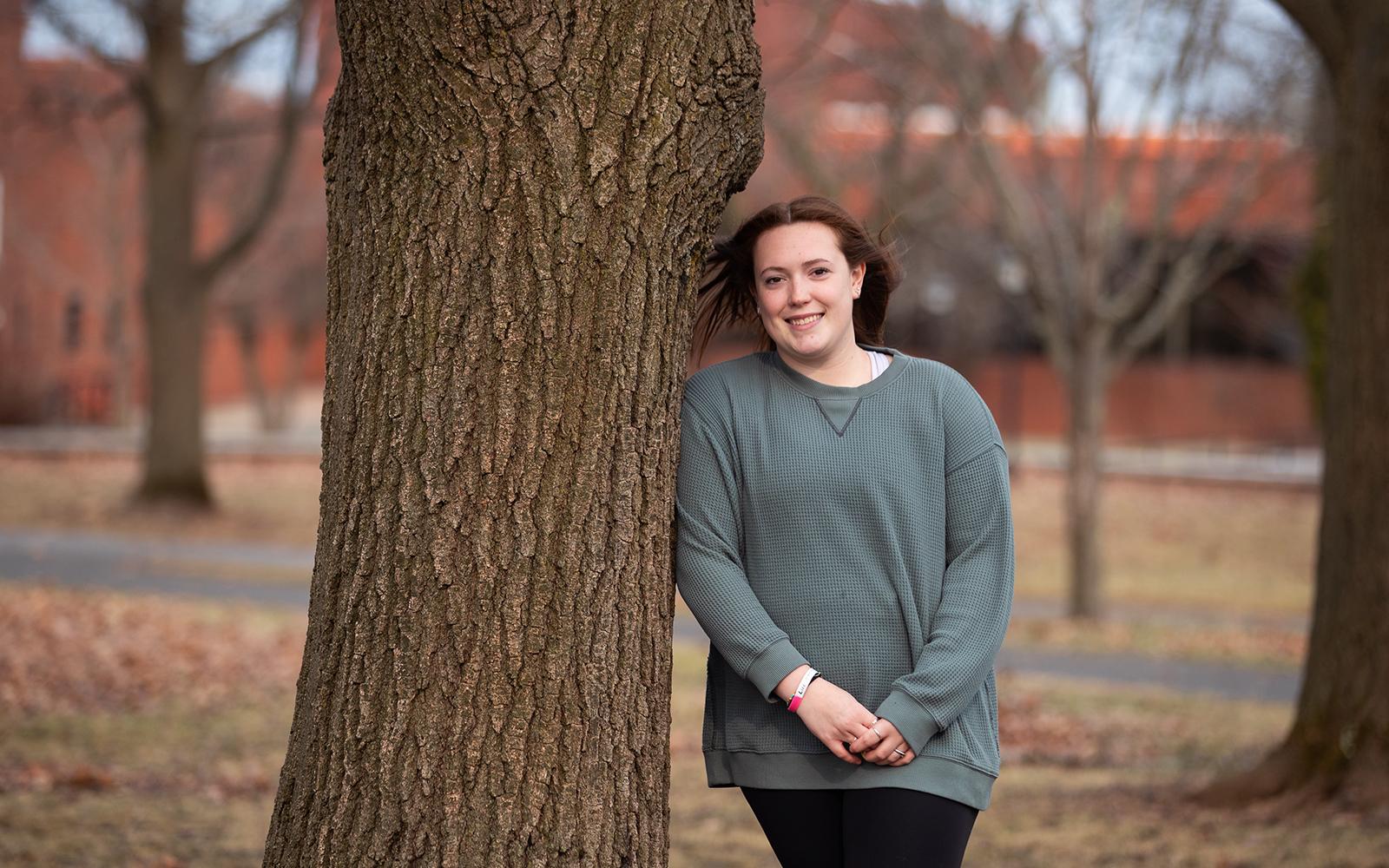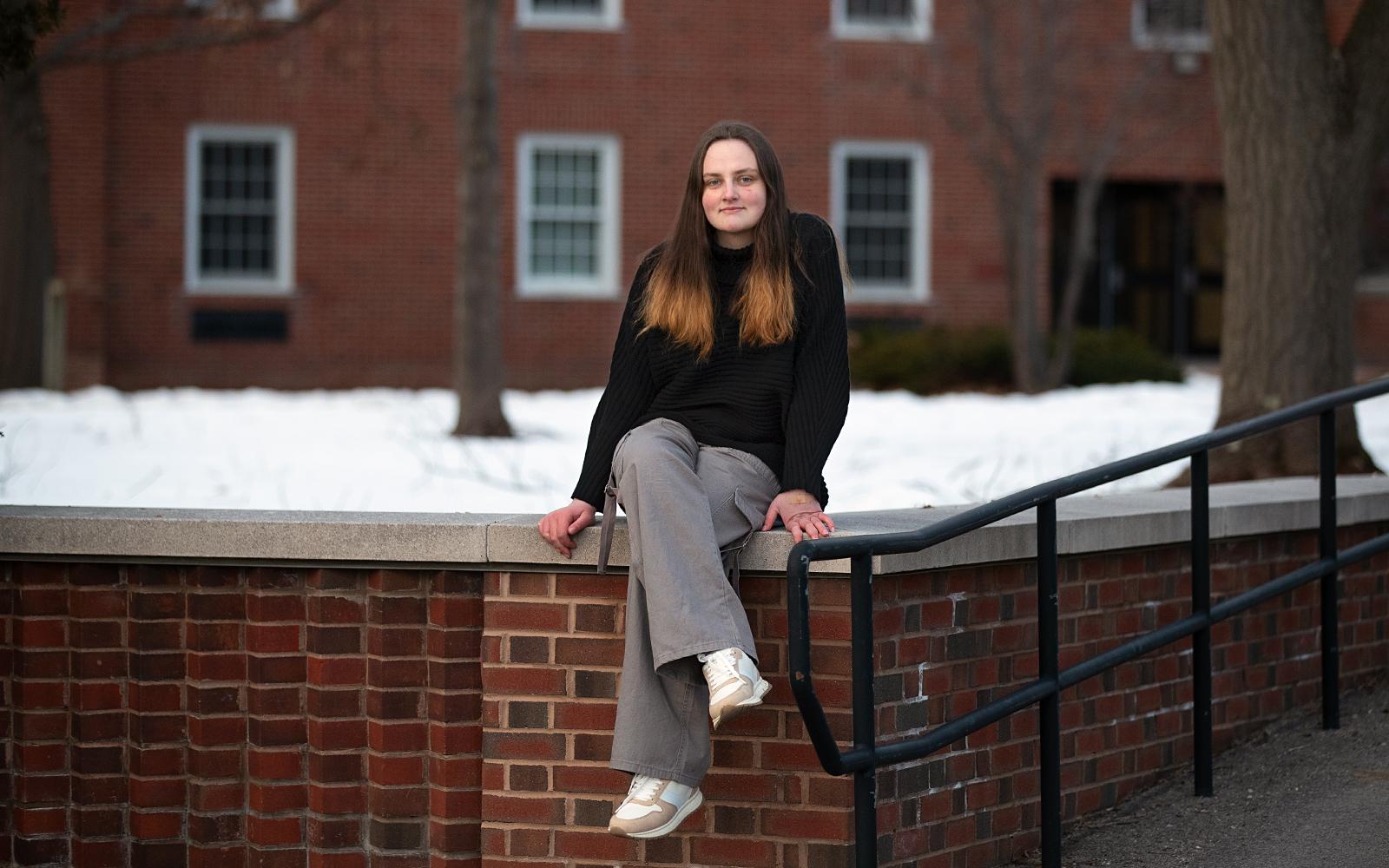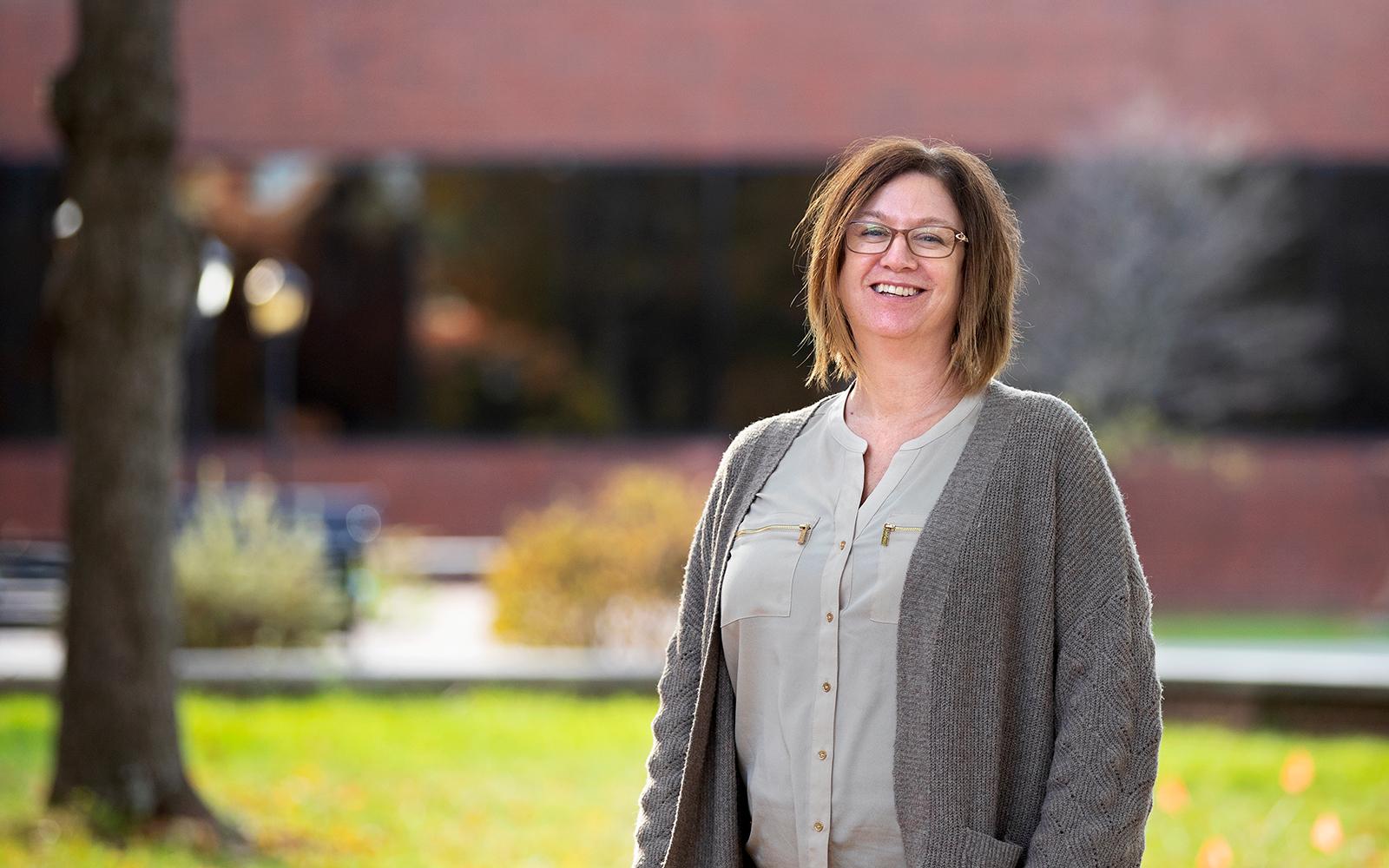When Abbigail Crahan ’24 walks across the Commencement stage in May, any concerns about her future will be overshadowed by years of preparation at SUNY Potsdam. The culmination of her hard work will take shape this summer and fall when she completes two final capstone internship experiences that will pave the way for a rewarding career.
As she wraps up her final semester in the public health program, Crahan is completing a pre-internship seminar course to help prepare her for placements at the Clinton County Health Department and at Behavioral Health Services North (BHSN) in her hometown of Plattsburgh, N.Y. For the latter, she will be working within the Healthy Families program at BHSN, which is focused on assisting parents and young children to create healthy relationships.
“The public health program is fantastic and is doing a great job at setting me up for the future. The professors are amazing, and you can tell that they truly care about you and want you to succeed. One of the most impactful things I have learned is how much work needs to be done in the field of public health. No matter what you decide to do in the field, you will be making a difference.”

Both internships have the potential to create job opportunities for Crahan at the end of the applied learning experiences. “When I was interviewing for that placement, I was told that this is a national program and if I want to pursue it as a career, I will have a higher chance of getting a job based on the fact that I did an internship placement in the program,” she said.
Even since the inception of SUNY Potsdam’s public health program (formerly called community health), internships have been strategically integrated into the curriculum. The culminating capstone experience, which most students complete during their final semester, allows them to take the skills they’ve learned in class, apply them in a real-world setting, and then fluidly transition into a full-time job immediately after receiving their degree. More than 40 percent of students completing internships through SUNY Potsdam’s public health program are offered jobs by their internship sites at the end of their placements.
“Public health is the gold standard of how applied learning can be on our campus as a capstone experience. Applied learning is valuable throughout the curriculum, but students are really ready for a 12-credit placement by the time they’re seniors. And then, they’re ready to accept those positions because they don’t have further schooling. Occasionally students still have a class to take, but the way it’s set up is that the internship is the last thing they do, and then they’re ready to get hired.”
Director of Applied Learning

Faculty from the Department of Public Health and Human Performance have continued to work with local organizations to form partnerships and create hands-on internship experiences for students. “We have a list of agencies we work with, so it’s relationship development, to be able to connect with an agency who trusts us to send them a student who is very well trained and ready to go,” said Dr. Kelly Bonnar, a professor and director of the public health program. “Even before that course, we do a lot of work looking at the issues that face our community, and then in the pre-internship seminar, they’re really learning about the professional skills they need to do that well.”
Students are encouraged to complete two seven-week internships, rather than one 14-week-long placement at one just site, to introduce them to different career options. “Doing two placements helps them determine what population they want to work with, what kind of organization, and what part of the field they would prefer. Often, I will have students who are sure that they want to do substance abuse work, but I convince them to do two placements, and then they’re floored to find they also really like this other part of the field too,” Lister said.
This semester, eight students are in the field, interning at public health agencies in the U.S. and Canada.
- Theresa Adams ’24 — Canadian Ministry of Health (addressing dental health issues of Indigenous people in Nunavut).
- Olivia Cook ’24 — Canton Potsdam Hospital’s Health Buddies Program (providing nutrition education to children in St. Lawrence County).
- Emily Esack ’24 — Cornell Cooperative Extension (working at local elementary schools to teach children about mindfulness and health education through the 21st Century Community Learning Commons grant).
- Lauren Winterbottom ’24 — Community Health Center of the North Country's WIC program (helping improve the lives of low-income women, infants, and children, and promote proper nutrition and healthy lifestyles).
- Katrina Cutler ’24 — Cornell Cooperative Extension (working with their SNAP-Ed nutrition education branch).
- Netta Terrance ’24 — Midwife Sunday Smith (promoting maternal health in the North Country).
- Austin Laymon ’24 — Madison County Public Health Department and with Colgate University
- Madison McLean ’24 — Seaway Valley Prevention Council
- Shelbie Alguire ’24— Seaway Valley Prevention Council
Many of the internship opportunities are also paid. Last year, Keely Fetterly ’23 completed an internship through the Cornell Cooperative Extension’s 21st Century After School Program where she provided health education locally to elementary students. “The Cornell Cooperative Extension wrote SUNY Potsdam's public health program into the grant. Every fall and spring for the next five years, we will have an intern work with their program delivering mindfulness and mental health education for K-8 students. Keely was the first student in the program,” Lister explained.
This semester, McLean is working at the Seaway Valley Prevention Council, a community-based organization focused on drug and alcohol prevention that offers education programs tackling the issues of substance abuse, and recovery services for St. Lawrence Country residents. “I like Seaway Valley’s mission. A lot of their programs involve working with youth and prevention. I’m really interested in that, and I’ve enjoyed seeing how they interact with the community,” McLean said a few weeks into her placement.

Madison McLean ’24
The public health program has evolved over the years. In Bonnar’s 400-level Program Planning course, students were previously tasked with completing a 15-page paper examining a health problem and how to solve it. Now, they have a more hands-on approach where they actually develop a plan and solve it. “We’re trying to work in some more of those applied pieces before they get to the internship. When they’re interviewing for a job, now they can say ‘I’ve done a survey, I’ve done a needs assessment, I did that in my classes,’” Bonnar said.
SUNY Potsdam’s students are entering the field of public health at the right time as state agencies are often struggling to fill positions.
“The New York State Department of Health is saying that in five years, in our county alone, 23 percent of their jobs are going to be vacant. There’s a need, there’s a huge need."
Director of the Public Health program

As Crahan completes her degree at SUNY Potsdam, she reflects on the impact of the public health program to prepare her for upcoming internships and her career. “The public health program is fantastic and is doing a great job at setting me up for the future,” said Crahan. “The professors are amazing, and you can tell that they truly care about you and want you to succeed. One of the most impactful things I have learned is how much work needs to be done in the field of public health. No matter what you decide to do in the field, you will be making a difference.”
Article and photos by Jason Hunter
